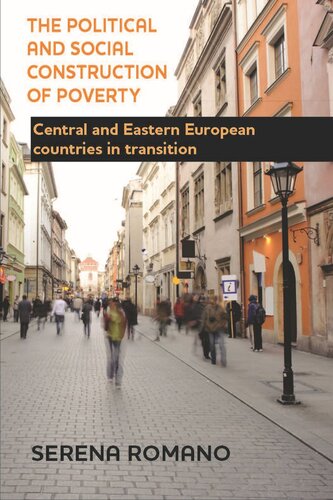

Most ebook files are in PDF format, so you can easily read them using various software such as Foxit Reader or directly on the Google Chrome browser.
Some ebook files are released by publishers in other formats such as .awz, .mobi, .epub, .fb2, etc. You may need to install specific software to read these formats on mobile/PC, such as Calibre.
Please read the tutorial at this link: https://ebookbell.com/faq
We offer FREE conversion to the popular formats you request; however, this may take some time. Therefore, right after payment, please email us, and we will try to provide the service as quickly as possible.
For some exceptional file formats or broken links (if any), please refrain from opening any disputes. Instead, email us first, and we will try to assist within a maximum of 6 hours.
EbookBell Team

0.0
0 reviewsPoverty is not a neutral phenomenon, nor are social inclusion programmes neutrally conceived, designed and implemented.Their ultimate nature is built upon ideas, values, actors, politics and economic constraints.This topical book is one of the first to examine the social and political construction of anti-poverty programmes in Central Eastern Europe and their transformation from communist rule to the current economic crisis. It covers the approach towards the ‘parasite’ poor through to Guaranteed Minimum Income Schemes and illustrates how the distinction between different categories of ‘deserving’ and ‘undeserving’ poor has evolved over the years as the result of changing paradigms, combined with the pressure exerted by domestic and international actors, the European Union and the World Bank among others. This text breaks new ground for social policy students and scholars interested in understanding how differently post-communist welfare states have represented, legitimised and dealt with poverty, need and social justice in accordance with divergent normative frameworks constructed at national level.